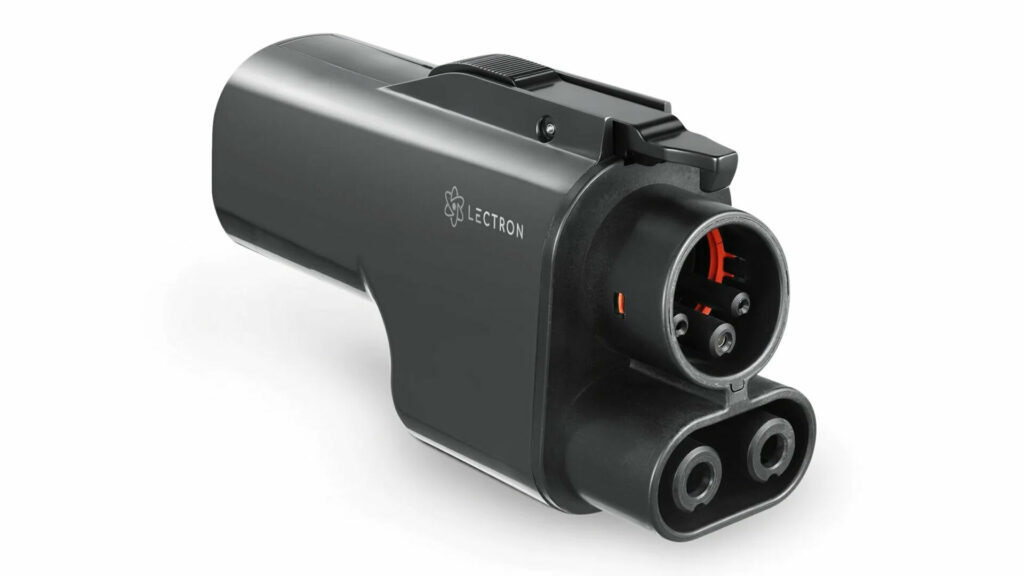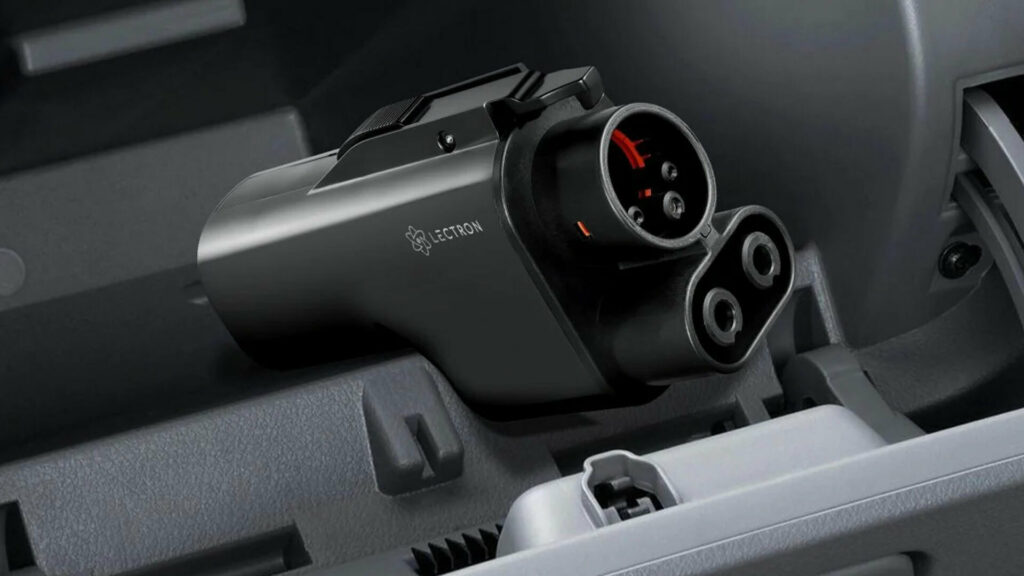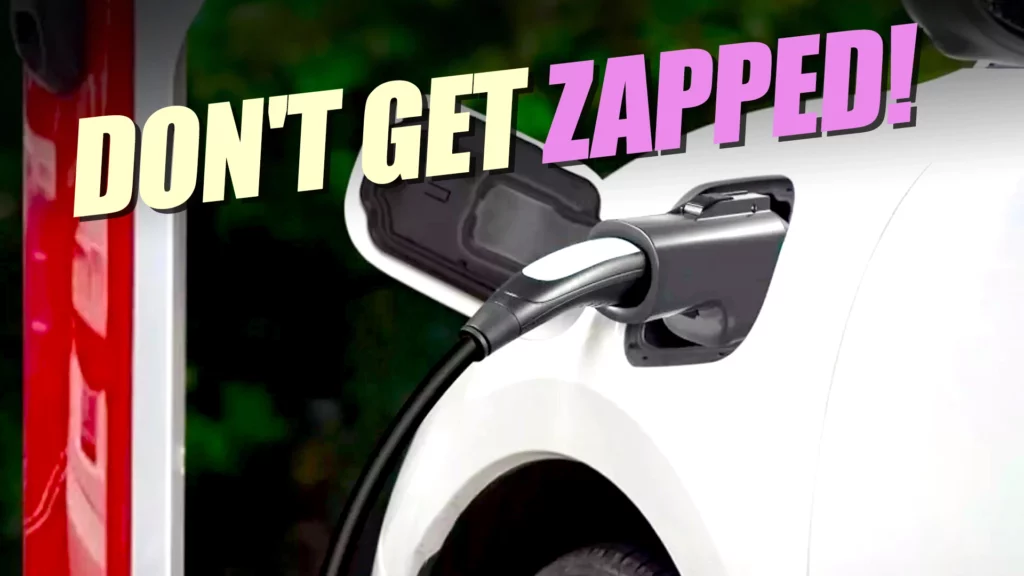- Nearly 2,000 Lectron NACS-to-CCS charging adapters are being recalled due to a faulty latch that may not securely connect to Tesla Superchargers.
- Interestingly, the recall was initiated after a YouTuber reported an issue with their Lectron adapter.
- The recall involves adapters manufactured between March 14 and April 8, 2024.
Charging adapters have been in the news a lot lately as a number of automakers recently gained access to the Tesla Supercharger Network. However, Lectron is now recalling 1,624 Vortex Tesla Supercharger (NACS) to Combined Charging System (CCS) adapters.
According to the National Highway Traffic Safety Administration (NHTSA), the adapter may not securely latch to the charger. If this occurs, the unsecured charger “can be disconnected without shutting off the charger power, increasing the risk of injury from an electrical shock.”
More: Ford EVs Can Now Use Tesla Superchargers Via A Free Adapter
The Safety Recall Report expands on that by saying some adapters – manufactured between March 14 and April 8 – have a latch pin that “deviates from the intended design.” This can prevent it from securely locking, which means the “charger coupler can potentially be forcibly removed by the user without depressing the NACS latch.”

Interestingly, the recall was sparked by a YouTuber. The report doesn’t mention which one, but it says Dropcases LTD – which built the component – became aware of a video where a user said they weren’t able to latch their adapter to a Tesla Supercharger.
The company contacted the YouTuber and requested them to send the component back for evaluation. This also sparked an internal investigation and it was eventually determined that “an error in the supplier’s processes resulted in a limited number of non-conforming units being shipped to customers.”
Dropcases LTD will replace the adapters with new ones that feature a NACS latch pin with a straight edge to prevent the removal of the charging coupler unless the NACS latch is depressed. It’s also worth noting the adapters were sold directly to consumers and don’t involve any other OEMs or distributors.
Images: Lectron





